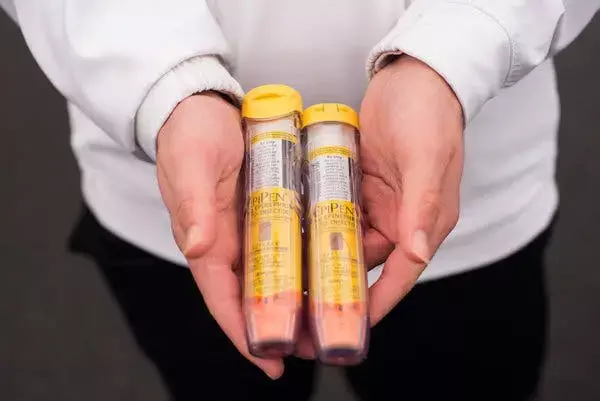- Home
- Medical news & Guidelines
- Anesthesiology
- Cardiology and CTVS
- Critical Care
- Dentistry
- Dermatology
- Diabetes and Endocrinology
- ENT
- Gastroenterology
- Medicine
- Nephrology
- Neurology
- Obstretics-Gynaecology
- Oncology
- Ophthalmology
- Orthopaedics
- Pediatrics-Neonatology
- Psychiatry
- Pulmonology
- Radiology
- Surgery
- Urology
- Laboratory Medicine
- Diet
- Nursing
- Paramedical
- Physiotherapy
- Health news
- Fact Check
- Bone Health Fact Check
- Brain Health Fact Check
- Cancer Related Fact Check
- Child Care Fact Check
- Dental and oral health fact check
- Diabetes and metabolic health fact check
- Diet and Nutrition Fact Check
- Eye and ENT Care Fact Check
- Fitness fact check
- Gut health fact check
- Heart health fact check
- Kidney health fact check
- Medical education fact check
- Men's health fact check
- Respiratory fact check
- Skin and hair care fact check
- Vaccine and Immunization fact check
- Women's health fact check
- AYUSH
- State News
- Andaman and Nicobar Islands
- Andhra Pradesh
- Arunachal Pradesh
- Assam
- Bihar
- Chandigarh
- Chattisgarh
- Dadra and Nagar Haveli
- Daman and Diu
- Delhi
- Goa
- Gujarat
- Haryana
- Himachal Pradesh
- Jammu & Kashmir
- Jharkhand
- Karnataka
- Kerala
- Ladakh
- Lakshadweep
- Madhya Pradesh
- Maharashtra
- Manipur
- Meghalaya
- Mizoram
- Nagaland
- Odisha
- Puducherry
- Punjab
- Rajasthan
- Sikkim
- Tamil Nadu
- Telangana
- Tripura
- Uttar Pradesh
- Uttrakhand
- West Bengal
- Medical Education
- Industry
10% of anaphylaxis Patients require Multiple Dose of Epinephrine, says study

Epinephrine is an established first-line treatment for anaphylaxis. In a recent study, researchers have reported that more than one dose of epinephrine is used for 1 in 10 anaphylactic reactions. The study findings were published in The Journal of Allergy and Clinical Immunology on April 13, 2021.
National and international regulatory agencies recommend that individuals at risk of anaphylaxis carry at least 2 epinephrine autoinjectors (EAIs) at all times. This is in contrast to guidelines from some specialist societies, which make this recommendation for only selected "at-risk" patients. However, the proportion of anaphylaxis reactions that are treated with multiple doses of epinephrine has not been systematically evaluated. Therefore, Dr Paul J. Turner and his team conducted a systematic review and meta-analysis of published studies reporting epinephrine treatment for anaphylaxis in which data relating to the number of doses administered were available.
In this analysis, the researchers searched the Medline, Embase, and Cochrane databases for relevant studies reporting at least 10 anaphylaxis events (due to food or venom) from 1946 until January 2020. They included a total of 86 studies (36,557 anaphylaxis events). They extracted data in duplicate for the meta-analysis and assessed the risk of bias as low in 50 studies.
Key findings of the study were:
- Among 86 studies, 20 of the studies [23%] were prospective studies; 64 [74%] reported reactions in the community, and 22 [26%] included food challenge data.
- Upon analysis, the researchers found that 7.7% of anaphylaxis events from any cause were treated with multiple doses of epinephrine.
- They noted that subsequent doses of epinephrine were administered only for epinephrine-treated reactions.
- They also noted that 11.1% of food-induced reactions and 17.1% of venom-induced reactions were treated with at least 1 epinephrine dose.
- Upon meta-analysis, they noted moderate to high heterogeneity but at sensitivity analysis, it was not affected by study design or anaphylaxis definition.
The authors concluded, "Around 10% of patients receiving epinephrine for anaphylaxis have a suboptimal response to a single dose of epinephrine, as assessed by a health care professional. These data are important in informing guidance on the provision of EAI for patients at risk of anaphylaxis in the community."
For further information:
DOI:https://doi.org/10.1016/j.jaci.2021.03.042
Medical Dialogues Bureau consists of a team of passionate medical/scientific writers, led by doctors and healthcare researchers. Our team efforts to bring you updated and timely news about the important happenings of the medical and healthcare sector. Our editorial team can be reached at editorial@medicaldialogues.in.
Dr Kamal Kant Kohli-MBBS, DTCD- a chest specialist with more than 30 years of practice and a flair for writing clinical articles, Dr Kamal Kant Kohli joined Medical Dialogues as a Chief Editor of Medical News. Besides writing articles, as an editor, he proofreads and verifies all the medical content published on Medical Dialogues including those coming from journals, studies,medical conferences,guidelines etc. Email: drkohli@medicaldialogues.in. Contact no. 011-43720751


